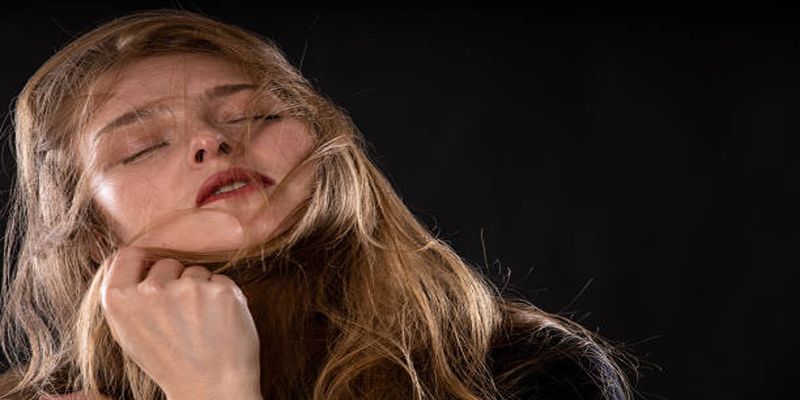From Breakage to Bacteria: 8 Reasons Wet Hair at Night is a Terrible Idea
Aug 22, 2024 By Maurice 0liver
Having wet hair at night may seem harmless or even refreshing, but it can lead to a host of issues that affect both your hair health and overall well-being. When hair is damp, it becomes more vulnerable to breakage and damage, as the strands are in a weakened state. Additionally, sleeping with wet hair can create a breeding ground for bacteria and fungi, which thrive in moist environments, potentially resulting in scalp issues. Moreover, the friction between your hair and the pillow can exacerbate tangling and split ends. Understanding these risks is essential for anyone looking to maintain healthy and vibrant hair. In this article, we will delve into eight compelling reasons why drying your hair before heading to bed is a crucial step in your nightly routine.
Increased Risk of Breakage
When hair remains wet for prolonged periods, it becomes significantly weaker. The hydrogen  bonds within the hair structure break down when exposed to moisture, leading to increased brittleness. This fragility makes hair more prone to breakage, especially when tossed and turned during sleep. By allowing your hair to dry completely before bed, you help to maintain its strength and resilience, reducing the likelihood of split ends and damage.
bonds within the hair structure break down when exposed to moisture, leading to increased brittleness. This fragility makes hair more prone to breakage, especially when tossed and turned during sleep. By allowing your hair to dry completely before bed, you help to maintain its strength and resilience, reducing the likelihood of split ends and damage.
2. Bacterial Growth
Wet hair provides an ideal environment for bacteria and fungi to thrive. The moisture trapped in your hair and on your scalp can lead to an overgrowth of these microorganisms, which can cause unpleasant odours and various scalp conditions, such as dandruff or folliculitis. A healthy scalp is vital for maintaining strong and vibrant hair, and ensuring your hair is dry before bedtime can significantly reduce the risk of these issues. By keeping your hair dry, you promote a cleaner, healthier scalp, ultimately benefiting your overall hair health.
3. Fungal Infections
In addition to bacterial growth, wet hair at night can also increase the risk of fungal infections. The damp environment created by sleeping with wet hair can lead to conditions such as athlete's foot or tinea capitis, commonly known as scalp ringworm. These fungi flourish in dark, moist areas, and the warm conditions of your bedding can exacerbate the problem. Keeping your hair dry helps to inhibit the growth of these harmful fungi, maintaining the health of your scalp and preventing related complications. Prioritising a dry hair routine can be a simple yet effective way to safeguard against these unpleasant issues.
4. Increased Frizz and Unruly Hair
Going to bed with wet hair often leads to increased frizz and unruliness. As hair dries overnight, it may not dry evenly, causing strands to swell and break the smooth cuticle layer. This uneven drying can result in a tangled, messy appearance by morning, making styling more challenging and time-consuming. By ensuring your hair is thoroughly dried before sleeping, you can enjoy smoother, more manageable locks that are easier to style and maintain throughout the day.
5. Discomfort During Sleep
Sleeping with wet hair can lead to discomfort that disrupts your rest. The moisture can create an uncomfortably cool sensation against your head and neck, making it difficult to fall asleep or stay asleep throughout the night. Additionally, damp hair can cling to your pillow, causing irritation and distractions as you shift into a more comfortable position. Ensuring that your hair is completely dry before bed not only enhances your overall comfort but also contributes to a more restful and rejuvenating sleep experience. A good night's sleep is essential for hair health, as it is during this time that your body repairs and regenerates cells, including those that support hair growth.
6. Impact on Hair Styling
Waking up with wet hair can significantly hinder your styling routine. When hair remains damp overnight, it often loses its natural shape and texture, resulting in a look that may require extra work to fix in the morning. Wet hair can become limp, making it difficult to achieve volume or hold hairstyles effectively. Additionally, attempts to style wet hair can lead to heat damage when blow-drying or using styling tools, further compromising hair integrity. By drying your hair before bed, you not only save time in the morning but also create a more manageable foundation for your preferred hairstyles, allowing for a polished and put-together appearance.
7. Increased Risk of Allergies and Irritations
Sleeping with wet hair can exacerbate allergies and skin irritations. The moisture trapped in your hair and on your pillow can lead to mildew or dust mites, both of which are common allergens. These irritants can trigger reactions such as sneezing, itching, or skin rashes, particularly for individuals with sensitivities. By ensuring your hair is dry before bed, you reduce the likelihood of creating a damp environment that supports these allergens, promoting a healthier sleeping environment and minimising the risk of related discomforts. Taking care of your hair hygiene ultimately contributes to your overall well-being and quality of sleep.
8. Maintaining Hair Colour and Treatment Integrity

For those who colour their hair or use specific treatments, going to bed with wet hair can diminish the longevity and effectiveness of these applications. Wet hair can cause colour to bleed or fade more quickly, especially when exposed to moisture in the pillowcase or bedding. Moreover, treatments such as deep conditioning or keratin may not adhere effectively to damp strands, reducing their intended benefits. By ensuring your hair is dry before sleep, you not only preserve your vibrant colour but also enhance the efficacy of any treatments, ultimately supporting healthier and more beautiful hair. Taking this simple step can make a significant difference in maintaining the look and feel of your hair over time.
Conclusion
Allowing your hair to dry completely before going to bed is a simple yet impactful practice that can safeguard your hair's health and integrity. From preventing breakage and bacterial growth to avoiding discomfort during sleep, the benefits of this routine extend beyond mere aesthetics. By prioritising dry hair before bedtime, you not only enhance your comfort and quality of sleep but also ensure that your hair remains manageable and vibrant. Embracing this habit can contribute significantly to maintaining beautiful, resilient hair and fostering an overall sense of well-being. Your hair deserves the best care, and a dry night's rest is a key factor in achieving that.







